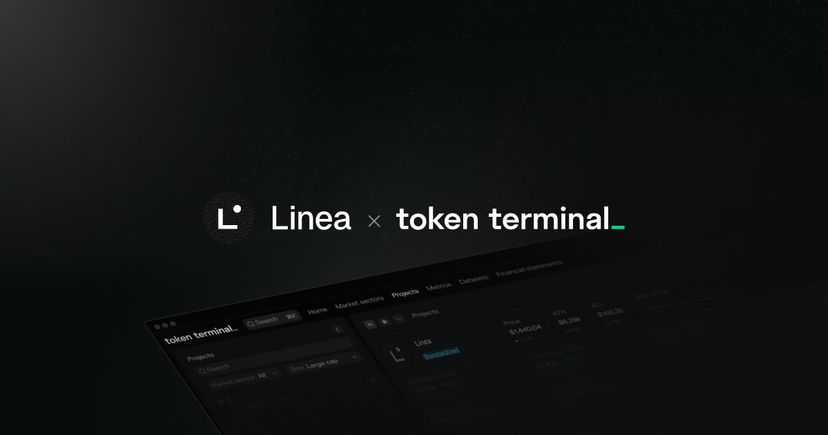Research
The state of Arbitrum: Scaling Ethereum

This is the twelfth post in our research series. In this series, we publish data-driven analysis on specific blockchains, dapps, and market segments. Let’s dig in!
Topic: Arbitrum, a Layer 2 scaling solution for Ethereum.
Arbitrum is an optimistic rollup designed to scale the Ethereum ecosystem. It increases Ethereum’s throughput by performing some off-chain computation and data storage before settling transactions in batches on the Ethereum Mainnet.
This article provides an overview of the protocol and looks at its historical performance using Token Terminal’s data.
Purpose
Arbitrum aims to make Ethereum better by improving its transaction finality and transaction throughput. Transaction finality refers to the amount of time it takes for a transaction to be completed (or rejected). Transaction throughput refers to the number of transactions the blockchain can process during a given period of time. Shorter transaction finality and higher transaction throughput result in a snappier user experience and cheaper gas fees.
Problem
On Ethereum, the amount of computation a transaction or an interaction with a smart contract requires is measured in units of gas. Ethereum’s blocks have a limited computational capacity and new blocks are generated at a roughly constant rate. This means that as the popularity of Ethereum has grown, the increased demand has pushed the gas prices up because supply has not increased.
Solution
Arbitrum is a separate blockchain designed to scale Ethereum. It belongs to a conceptual category of layer-2 (L2) scaling solutions that add another layer of computation and data storage on top of the layer-1 (L1) blockchain, i.e., the Ethereum Mainnet. Arbitrum stores smart contracts, performs computation, and executes transactions that are sent to L1 in batches for finalization. By doing this, sending tokens and using decentralized applications (dapps) costs roughly 5-20x less in gas fees on Arbitrum than on Ethereum, depending on the type of transactions.
Since Arbitrum is an optimistic rollup, the transactions submitted to L1 are assumed to be valid by default. Currently, all transactions are submitted to L1 by a program called the sequencer that is controlled by the company behind Arbitrum, making the blockchain dependent on a centralized entity in its current state. A hardware failure in the computer running the sequencer in January 2022 caused the Arbitrum network to be temporarily unavailable. However, Arbitrum is still in beta, and decentralization of the sequencer is on the project’s long-term roadmap.
Why now
Since the summer of 2020, Ethereum has grown immensely in terms of the number of dapps, total value locked, and valuation of ETH. At the same time, general interest in blockchain applications has grown exponentially as non-fungible tokens (NFTs) have become mainstream and more investors are experimenting with DeFi. However, Ethereum’s inability to scale has hindered its growth and utility. The demand for scalable blockchains and dapps is higher than ever before and investors are willing to fund teams building scaling solutions.
Market
Arbitrum is a part of the Ethereum ecosystem. Ethereum is a leading blockchain for deploying dapps focused on DeFi, NFTs, and more. Despite the recent market crash, the Ethereum ecosystem has kept maturing as more dapps have been deployed. An important upgrade to the Ethereum blockchain is expected to occur in 2023. The upgrade will introduce sharding (i.e., parallel processing of transactions across separate blockchains known as shards) to greatly increase Ethereum’s throughput. Until this, demand for L2 scaling solutions is expected to stay high. Moreover, if blockchain technologies reach mass adoption, the global demand will be sufficient for many successful scaling solutions and parallel blockchains to thrive simultaneously.
Competition
In the short term, Arbitrum competes with other Ethereum scaling solutions for liquidity and developers. Arbitrum´s closest competitor is Optimism, another optimistic rollup designed to scale Ethereum. Currently, the total value of assets on Arbitrum is $990M, roughly three times larger than on Optimism ($358M). Several zero-knowledge rollups (i.e., rollups that do not assume the transactions submitted to L1 are valid) are expected to launch in 2022 and beyond. However, since Arbitrum´s success ultimately depends on the success of the entire Ethereum ecosystem, other scaling solutions are not necessarily direct competitors in the long term. Other L1 blockchains compete directly with the entire Ethereum ecosystem.
Product
Arbitrum Mainnet launched at the end of August 2021. For users and developers, using Arbitrum is nearly identical to using Ethereum, except significantly faster in terms of transaction finality and cheaper in terms of gas fees. Arbitrum supports the same remote procedure call (RPC) interface as Ethereum, enabling users to use Arbitrum with wallets developed for Ethereum, such as Metamask. Arbitrum also supports arbitrary Ethereum Virtual Machine (EVM) contracts, making it easy for Ethereum developers to deploy their dapps on Arbitrum. All of Ethereum’s smart contract languages work on Arbitrum. Assets can be transferred from Ethereum and other blockchains to Arbitrum using bridges. The dapps deployed on Arbitrum include well-known names such as GMX, Curve, Uniswap, and Aave and the number of dapps is continuously growing.
Business model
Arbitrum generates revenue by charging transaction fees. The fees consist of L1 fees that cover computation and smart contract storage on the Arbitrum blockchain and L2 fees that cover the L1 gas fees on Ethereum for storing transactions.
Team
Arbitrum is developed by Offchain Labs, a U.S.-based company founded in 2018 by Ed Felten, Steven Goldfeder, and Harry Kalodner. They have raised over $124 million in seed, Series A, and Series B funding rounds. The development team’s activity and growth can be followed by looking at Arbitrum’s open-source codebase.
Financials
As of July 2022, Arbitrum does not have its own token.
The transaction fees on Arbitrum are paid in ETH. The figures below show total transaction fees and how the revenue is split between the protocol (i.e., Offchain Labs that controls the accumulated L2 fees) and supply-side participants (i.e., Ethereum miners that receive the L1 fees). Although the value of fees paid has been declining due to the declining value of ETH, Arbitrum’s users paid nearly $30M in June 2022 for using the blockchain, of which $11M were paid to the protocol.
The figure below shows the total number of interacting addresses for each day since the launch of the Arbitrum Mainnet. Interacting addresses includes all wallet and smart contract addresses that send or receive at least one transaction on a given day. After an initial peak in activity, the number of users stabilized until the beginning of 2022, after which it has been consistently growing.
Conclusion
Arbitrum is a leading scaling solution for Ethereum. It can host Ethereum-native dapps at reduced gas fees and its ecosystem of dapps is growing. However, its future success depends on how it can respond to increased competition in the rollup space.
The authors of this content, or members, affiliates, or stakeholders of Token Terminal may be participating or are invested in protocols or tokens mentioned herein. The foregoing statement acts as a disclosure of potential conflicts of interest and is not a recommendation to purchase or invest in any token or participate in any protocol. Token Terminal does not recommend any particular course of action in relation to any token or protocol. The content herein is meant purely for educational and informational purposes only, and should not be relied upon as financial, investment, legal, tax or any other professional or other advice. None of the content and information herein is presented to induce or to attempt to induce any reader or other person to buy, sell or hold any token or participate in any protocol or enter into, or offer to enter into, any agreement for or with a view to buying or selling any token or participating in any protocol. Statements made herein (including statements of opinion, if any) are wholly generic and not tailored to take into account the personal needs and unique circumstances of any reader or any other person. Readers are strongly urged to exercise caution and have regard to their own personal needs and circumstances before making any decision to buy or sell any token or participate in any protocol. Observations and views expressed herein may be changed by Token Terminal at any time without notice. Token Terminal accepts no liability whatsoever for any losses or liabilities arising from the use of or reliance on any of this content.
Stay in the loop
Join our mailing list to get the latest insights!
Continue reading
- TEMPLATE weekly fundamentals

TEMPLATE weekly fundamentals
The latest from Token Terminal: new listings, metrics, and datasets. Stay informed with data-driven insights from Token Terminal Pro, and discover the latest updates to our API and Data Room offerings.
- Customer stories: Token Terminal’s Data Partnership with Linea

Customer stories: Token Terminal’s Data Partnership with Linea
Through its partnership with Token Terminal, Linea turns transparency into a competitive advantage and continues to build trust with its growing community.
- Customer stories: Token Terminal’s Data Partnership with Linea

Customer stories: Token Terminal’s Data Partnership with Linea
Through its partnership with Token Terminal, Linea turns transparency into a competitive advantage and continues to build trust with its growing community.